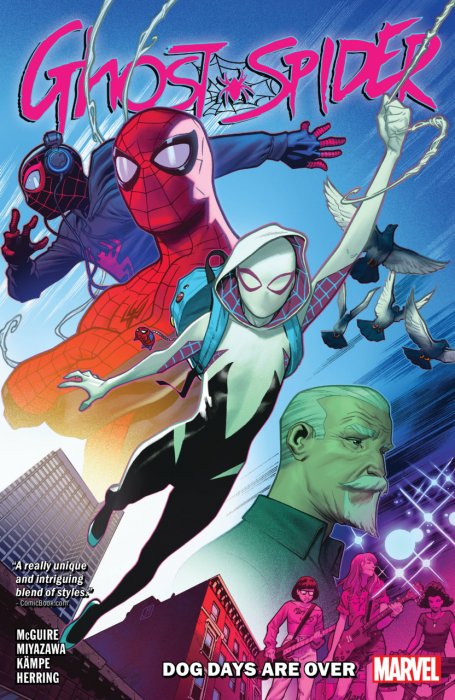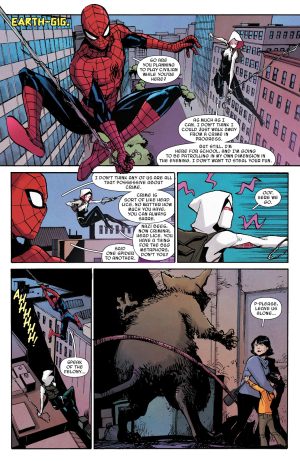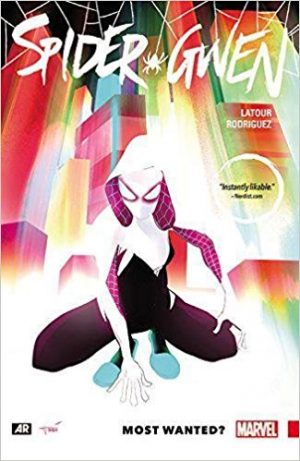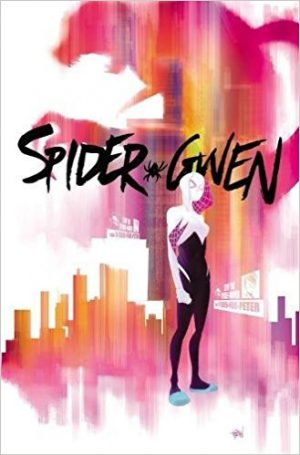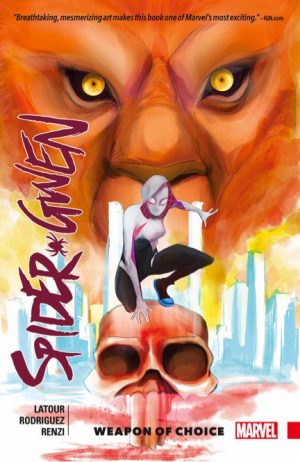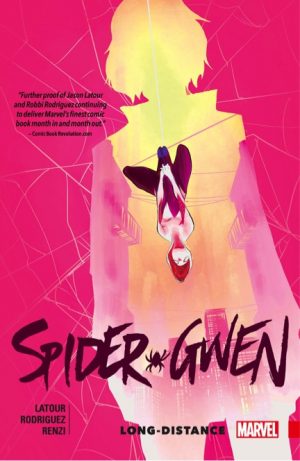Review by Frank Plowright
After several years as Spider-Gwen, the folk at Marvel decided the popular alternate universe Spider-Man needed stronger branding, so having been Spider-Woman she became Ghost Spider. This is after the halfway house of Spider-Gwen: Ghost-Spider under the same creative team, which concluded with Impossible Year. Just like Miles Morales, she’s been shifted from an alternative universe to the one housing the primary Peter Parker as Spider-Man, although a difference is set by her being able to return home whenever she wants. Complications arising from a different Gwen once being Spider-Man’s girlfriend are sidelined by this Gwen being younger.
A team-up with Spider-Man to open the collection is presumably marketing-dictated as a jumping-on point for new readers, but serves to indicate Seanan McGuire’s intelligent writing. What could have highlighted Gwen as nothing but a Spider-Man knock-off in his company instead becomes a marker of how different they are, and the scene of Gwen explaining her costume to the kid she’s just rescued is a perfectly pitched treat. McGuire also develops a neat solution to Gwen’s stalled college career from the previous series.
Rather than jettisoning past continuity for the rebrand, McGuire actively pulls at it, rapidly returning threats in the form of the Jackal and Man-Wolf, but they’re lurking rather than up front. The primary motivation to begin with is to present Gwen as a relatively ordinary young woman just starting college, albeit one in a different dimension. That’s highlighted by the loose, but naturalistic art supplied by Takeshi Miyazawa, whose career is littered with delightful interpretations of younger heroes all the way back to Runaways. Toward the end Ig Guara attempts an approximation of the style in a sequence featuring the Jackal, but it lacks the warmth.
While everything starts very well, there’s a feeling of McGuire enjoying the slice of life material far more than the superhero scenes, and while it’s well written, the mixture isn’t right, and that’s carried over from the previous series. We don’t want to see Gwen easily dealing with ordinary crooks, but with someone a little more substantial. That only occurs in the final chapter, and it’s awkward, although McGuire writes a very creepy Jackal.
There’s no conclusion here, yet the Jackal’s menace is forgotten in Party People, and while this starts with promise and a viable cast, better balance between action and drama is needed. It’s collected with the remainder of McGuire’s material in the Spider-Gwen: Ghost-Spider Omnibus.
